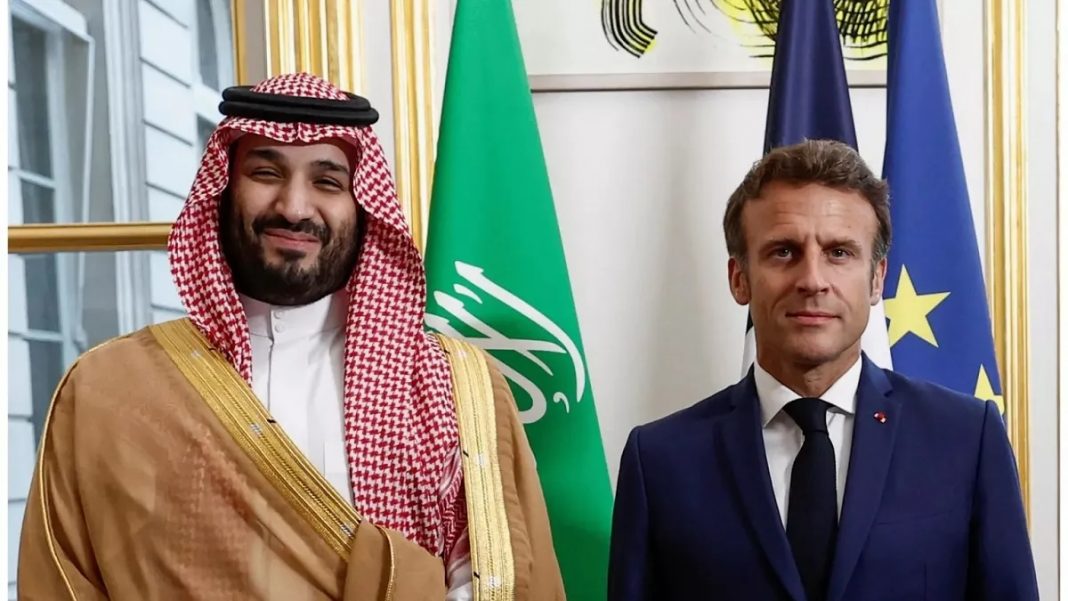Gabriel G. Tabarani
In the shadow of war and amid a collapsing regional order, an international push to recognize a Palestinian state is gathering steam. France, Saudi Arabia, and a host of other nations are poised to endorse Palestinian sovereignty, a move both overdue and fraught with peril. Yet as compelling as the symbolic power of recognition may be, the question remains: can it offer more than a gesture in the face of a deepening one-state reality?
The urgency behind this push is clear. Gaza lies in ruins, the West Bank is under siege from increasingly emboldened Israeli settlers, and the peace process is long dead in practice, if not in rhetoric. Israeli Prime Minister Benjamin Netanyahu openly rejects a two-state solution. The Trump administration echoes that rejection, going further to suggest that any future Palestinian state should not emerge from occupied territories but rather be carved out of “a Muslim country” — a sentiment both cynical and disconnected from history, geography and political reality.
And yet, recognition is back on the table. French President Emmanuel Macron has publicly committed to recognizing a Palestinian state, and similar momentum is building across Europe and the Arab world. This signals more than diplomatic posturing; it reflects growing global frustration with Israel’s de facto annexation of the Palestinian territories and the mounting cost of U.S. support for Israel’s war in Gaza — a bill that has topped $22 billion and drawn the U.S. into direct confrontation with Iran and its proxies in the region.
In this environment, recognition of Palestine appears as a tempting diplomatic shortcut. It offers a tangible response to the devastation in Gaza and rising public outrage, especially in Arab countries. It gives regional leaders like Saudi Crown Prince Mohammed bin Salman a way to salvage credibility after years of quiet normalization with Israel. It also provides U.S. President Donald Trump, known for his unpredictability and transactional worldview, with leverage to force a “grand bargain” that might include an Iran deal or a new Middle East security pact.
But recognition is not a magic wand.
Symbolic recognition, if unaccompanied by enforceable consequences and real political will, could do more harm than good. It risks becoming a fig leaf — a way for the international community to feel like it is acting, while in practice abandoning Palestinians to an entrenched apartheid system. Worse, it might entrench a one Jewish state reality in which Palestinians have neither sovereignty nor equal rights, all under the guise of diplomatic progress.
Since being granted non-member observer status at the UN in 2012, Palestine has joined key international bodies like the International Criminal Court, advancing its legal standing even as its territorial claims diminish on the ground. A new wave of recognitions could bolster this trajectory, signaling that Israeli expansionism is not without diplomatic cost. But this is not 2012 — the facts on the ground have changed dramatically. Israeli settlements have expanded. Palestinian governance has fragmented. The Israeli military campaign in Gaza threatens to make the territory uninhabitable.
So what would meaningful recognition entail?
It would require more than UN votes or ceremonial embassy plaques. It must be tied to conditions: an end to settlement expansion, dismantling of illegal outposts, protection for Palestinian civilians, and clear pathways for Palestinian political institutions to be rebuilt. Recognition must come with teeth — consequences for Israel’s continued violation of international law, and incentives for reform within Palestinian leadership.
The risk is that the world stops at recognition, mistaking symbolism for substance. Such a move would not only embolden Israeli hardliners but also further alienate Palestinians from an international system that has long promised peace while delivering war.
Yet the opportunity, slim as it may be, cannot be dismissed.
Trump — unpredictable, unburdened by diplomatic orthodoxy, and desperate for a foreign policy win — could find in Palestinian recognition a path toward reshaping the regional order. He has shown willingness to defy Israeli preferences in the past, such as reaching a truce with Yemen’s Houthis without Israeli input or lifting sanctions on Syria. If he were to champion recognition as part of a broader Middle East strategy —linking it to a ceasefire in Gaza, a new deal with Iran, and normalization between Israel and Saudi Arabia— it could mark a turning point.
Still, this moment requires more than the whims of a mercurial president. It demands coordinated international resolve. The goal should not merely be to affirm Palestinian statehood in theory but to forge a path that makes it possible in practice.
The recognition of Palestine, then, is both promise and peril. Done right, it could re-anchor the Israeli-Palestinian conflict in international law and create a framework for justice and coexistence. Done wrong, it becomes yet another diplomatic illusion — the appearance of progress while the ground beneath Palestinians continues to vanish.
Either way, the world is watching. It is no longer enough to declare support for a two-state solution while enabling the machinery of a one Jewish state reality. Recognition must be a beginning, not an end.


